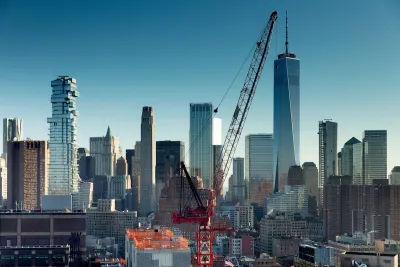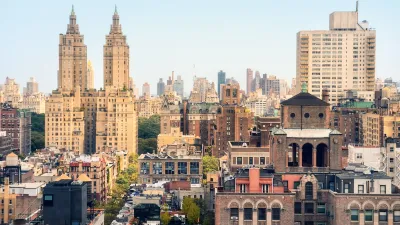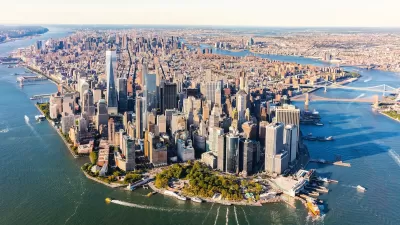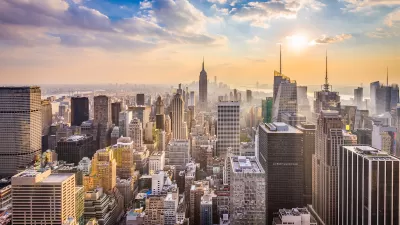A lawsuit brought by local lawmakers and community groups claims the plan failed to conduct a comprehensive environmental review.

The long-debated City of Yes zoning reform plan, championed by New York City Mayor Eric Adams, is facing a legal challenge from dozens of local legislators and community groups, according to a New York Post article by Craig McCarthy, Georgett Roberts, and Peter Senzamici.
The lawsuit argues that the administration did not conduct the necessary environmental reviews for the plan, which promotes increased density and transit-oriented development ot boost the city’s housing supply. The plan aims to support the building of 80,000 new housing units over the next 15 years — a number lower than the plan’s original goal.
As the authors explain, “The pro-development City of Yes had three environmental reviews but they were conducted as if City of Yes was three separate initiatives — carbon neutrality, economic opportunity and housing opportunity.” The suit argues that separating the reviews avoided the potential negative results of one comprehensive review.
The plan is primarily opposed by lawmakers and groups from less dense neighborhoods who argue that their infrastructure may not be able to support denser development and larger buildings. “The changes were approved by the council in December on a 31-20 vote after lengthy negotiations, which led to a partially scaled-back plan.”
FULL STORY: Eric Adams’ City of Yes housing plan in crisis after dozens of pols, community groups sue to end initiative

Manufactured Crisis: Losing the Nation’s Largest Source of Unsubsidized Affordable Housing
Manufactured housing communities have long been an affordable housing option for millions of people living in the U.S., but that affordability is disappearing rapidly. How did we get here?

Americans May Be Stuck — But Why?
Americans are moving a lot less than they once did, and that is a problem. While Yoni Applebaum, in his highly-publicized article Stuck, gets the reasons badly wrong, it's still important to ask: why are we moving so much less than before?

Using Old Oil and Gas Wells for Green Energy Storage
Penn State researchers have found that repurposing abandoned oil and gas wells for geothermal-assisted compressed-air energy storage can boost efficiency, reduce environmental risks, and support clean energy and job transitions.

Native American Communities Prepare to Lead on Environmental Stewardship
In the face of federal threats to public lands and conservation efforts, indigenous groups continue to model nature-centered conservation efforts.

Proposed Bill Would Direct Funds to Road Safety
The Sarah Debbink Langenkamp Active Transportation Safety Act was spurred by the death of a U.S. diplomat who was killed on her bicycle.

Museum of Public Housing Opens in Chicago
The museum highlights the history of public housing in the United States using displays intimately woven with family artifacts.
Urban Design for Planners 1: Software Tools
This six-course series explores essential urban design concepts using open source software and equips planners with the tools they need to participate fully in the urban design process.
Planning for Universal Design
Learn the tools for implementing Universal Design in planning regulations.
Heyer Gruel & Associates PA
City of Moreno Valley
Institute for Housing and Urban Development Studies (IHS)
City of Grandview
Harvard GSD Executive Education
Salt Lake City
NYU Wagner Graduate School of Public Service
City of Cambridge, Maryland





























